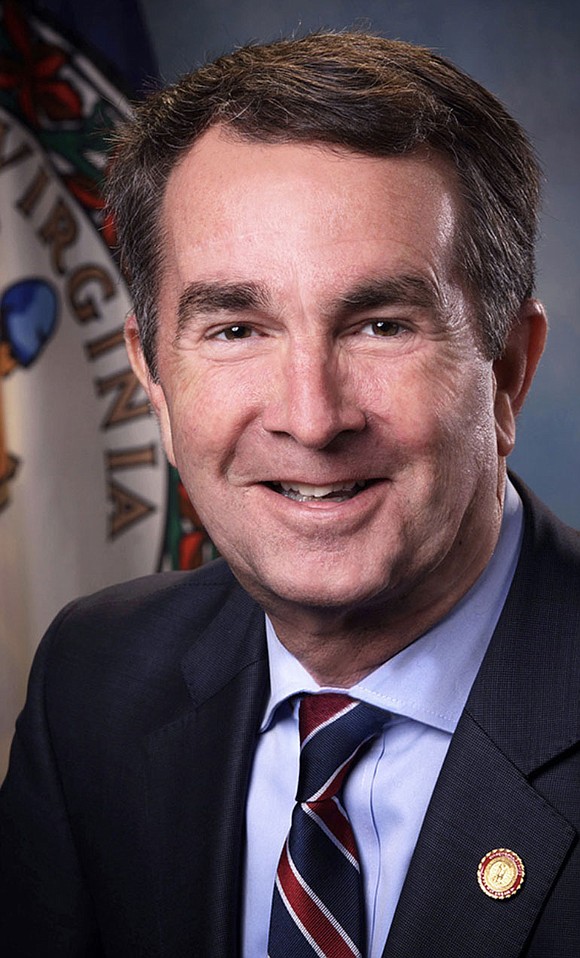Virginia is poised to eliminate the death penalty
Jeremy M. Lazarus | 2/11/2021, 6 p.m.
The death penalty has been a staple of Virginia law since the first English settlers arrived in Jamestown.
But more than 412 years after an English ship’s captain became the first person to be put to death in Virginia for spying for Spain, the death knell is ringing for the death penalty itself.
With the governor, lieutenant governor and attorney general cheering them on, members of the General Assembly are hustling to eliminate the increasingly unpopular ultimate punishment that has long been regarded as a tool of racial oppression.
In historic actions — a 21-17 vote in the state Senate on Feb. 3and then in a 57-41 vote in the House of Delegates on Feb. 5 — the legislature put itself on record to abolish Virginia’s death penalty that once had huge support as a crime deterrent but now is derided as an extension of lynching.
With slight variations, the approved bills would eliminate capital punishment and replace death with a life sentence from which the convicted could not be paroled, a move some political analysts are describing as a watershed moment for a state that has been a national leader in executions.
Both houses still must reconcile their differences and pass a final version that can head to Gov. Ralph S. Northam for his signature. The governor submitted the initial bill and has promised to sign the finished product when it reaches his desk. Through his intervention, the legislature has been granted 16 additional days to get through the final procedural hurdles on that bill and such equally high-profile bills including legalizing personal marijuana use and providing for the expungement of criminal records.
With final passage, Virginia would join 22 other states that already have done away with the death penalty and become the first former Confederate state to do so, according to national data.
A signal of the political change that has washed over the once stalwart conservative state, the vote also reflects the waning support for capital punishment among the public and among prosecutors. According to abolition advocates, who had been building momentum for decades, two events made this possible.
First, Democrats who already were in control of the governor’s mansion and more supportive of abolition, won the majority of seats in both the House and Senate in 2019.
Then, amid the pandemic came the Black Lives Matter demonstrations and marches for racial justice in 2020 following the police killing of George Floyd in Minneapolis. Richmond became the center of the Virginia protests that ultimately eliminated most of the racist Confederate statues that had dominated the landscape, put police brutality in the spotlight and made the government put top priority on criminal justice reform to end racial disparities.
The Rev. LaKeisha Cook, a justice reform advocate with the Virginia Interfaith Center for Public Policy, said those protests, along with the federal government’s spate of executions in the final months of the Trump administration, pushed “racial justice issues and capital punishment to the forefront of people’s minds and conversations.”
Michael Stone, executive director of Virginians for Alternatives to the Death Penalty, which has been working for abolition for 30 years, also credits the wave of racial justice protests with giving the final push for this change.
The protests appear to have influenced Gov. Northam, who has been seeking to make amends since facing accusations early in his term of wearing blackface as a medical student 30 years ago.
While he did not mention the Black Lives Matter movement, Gov. Northam used his State of the Commonwealth address to announce his support and became the first governor to submit legislation to eliminate death sentences.
He, like others, noted that the death penalty does not deter murder, reduce crime or bring closure to families of victims.
While removing the death penalty from state law would be huge, Mr. Stone and others noted that the death penalty essentially has been repealed in actual practice.
In most localities in Virginia, prosecutors do not seek the death penalty and the last conviction on a capital charge anywhere in the state occurred nine years ago.
The greater expense has been a deterrent, according to advocates. So has the state’s creation of regional capital defender offices that have provide defendants with better legal representation, making it harder to get a death conviction. A state Supreme Court decision also requires prosecutors to tell juries that the alternative to the death penalty is life imprisonment.
Currently, two men are awaiting execution in Virginia, Anthony B. Juniper, 49, who was convicted in 2005 of killing four people in Norfolk, and Thomas A. Palmer, 45, who was convicted in 2007 of killing a Norfolk police officer.
Since Virginia became a colony, nearly 1,400 people have been executed in the Commonwealth, including 113 since 1976 when the death penalty was reinstated by the U.S. Supreme Court. During the Jim Crow era, historical records show that Black people were particularly targets of state retribution.
Between 1900 and the early 1970s when the nation’s highest court temporarily suspended capital punishment after finding it was used unfairly, Virginia executed 73 Black people for crimes other than murder, including rape, attempted rape and robbery that did not involve death. No white people convicted of those charges were sentenced to death.
Heightened awareness of the role that race plays in death sentences has quietly gained public attention, with polls showing public support for the death penalty falling by 25 percentage points.







